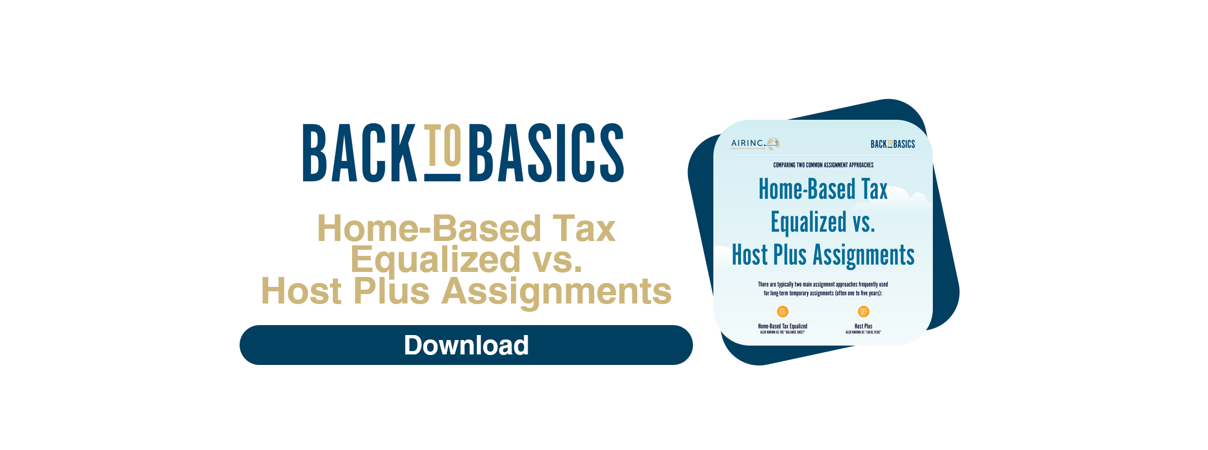In the world of long-term temporary assignments, two popular approaches are often used: the Home-Based Tax Equalized (also known as the "Balance Sheet") and the Host Plus (also known as "Local Plus"). Throughout this blog series, we will delve into the fundamentals of both strategies and guide you in choosing the right one for your unique needs. And of course, we can't forget everyone's favorite topic - taxes!
It’s important to know that expatriate assignments are not one-size-fits-all. The budget of the employer, priorities of both the employer and the employee, and the salary affinity between the home and host countries must all be considered when deciding which approach the employer will use. This decision should be based on a variety of factors: assignment length, level of employee, assignment purpose, intended assignment conclusion, and home and host location.
HOME-BASED TAX EQUALIZED (also known as the Balance Sheet Approach)
The Home-Based Tax Equalized approach, or the “Balance Sheet” approach, is common for expatriate assignments. It is often favored for its ability to equalize all assignment costs for the employee and can usually make the employee’s decision to accept an expatriate assignment an economically neutral one.
Home and host locations rarely feature the exact same housing prices, cost of living, and tax laws. In the Balance Sheet approach, the employer will cover the cost differences of those assignment factors. Housing and cost of living differences are usually covered by employer-provided allowances or differentials, and taxes are equalized by the employer to match the employee’s expected home tax contribution.
The Balance Sheet approach enables mobility between virtually any home and host location — even those with a volatile economic relationship — due to its ability to neutralize the cost differences associated with an expatriate assignment. It should be noted that all these cost differences will be covered by the employer, so the economic relationship between home and host locations should always be taken into account when deciding to use the Balance Sheet.
HOST PLUS (also known as Local Plus)
Host Plus, also known as "Local Plus", is commonly used for long-term expatriate assignments. Through this approach, employees are compensated and live much like local residents of the host location: they are paid on a host peer salary and are responsible for host location taxes.
Based on the economic relationship between the home and host locations, the employee stands to gain or lose financially. The Host Plus approach places less economic burden on the employer, and the employee assumes some of the financial risk; therefore, Host Plus is not well-suited for economically volatile situations. However, depending on the relationship between the home and host location, the employee may find themselves in relatively the same position as their home location, or even gain economically from the assignment.
Stay tuned to find out more on how to choose the right approach.




%20(24).png)
%20(20).png)
%20(33).png)

